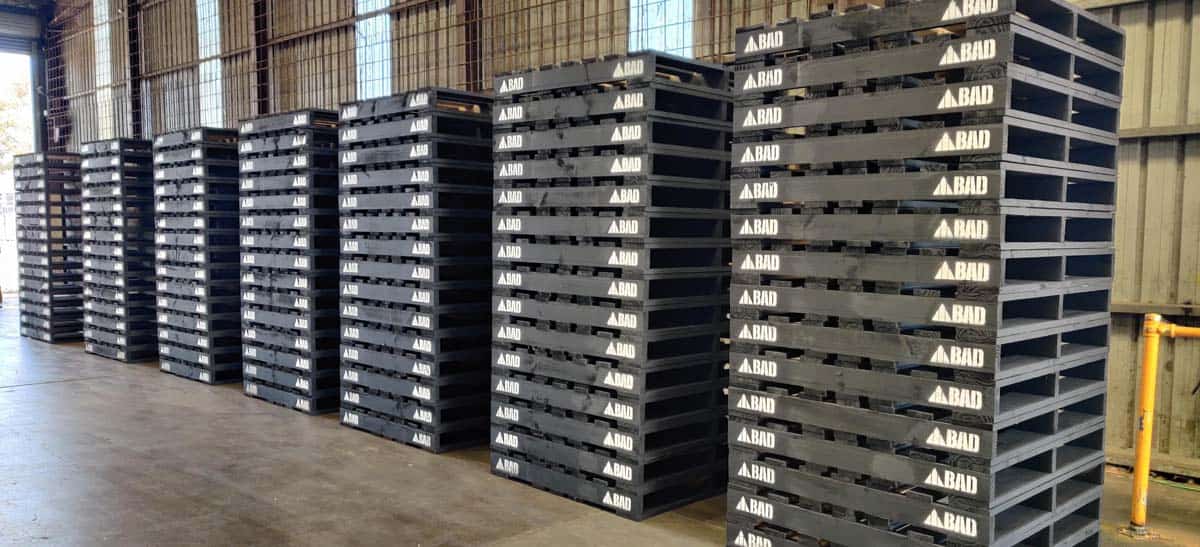
Plastic pallets play a crucial role in the cold storage and food industry, providing a reliable and hygienic solution for transporting goods. Designed for durability and safety, they help maintain product integrity and streamline logistics. This makes them indispensable for businesses aiming to efficiently manage their supply chain while adhering to strict industry standards.
Ensuring the safe and efficient transportation of goods is vital in the food sector, where strict hygiene and temperature controls are required. Here’s how they contribute significantly to the cold storage and food industry:
Maintaining cleanliness is crucial when dealing with food products, and these items excel. Made from non-porous materials, they do not absorb moisture, oils, or bacteria, reducing the risk of contamination. This makes them ideal for transporting perishable goods such as fruits, vegetables, meat, and dairy. Additionally, their smooth surfaces allow for easy washing and sanitising, which helps maintain strict hygiene standards and reduces the risk of cross-contamination.
Cold storage facilities must ensure that perishable items are kept at stable, low temperatures to maintain freshness. Plastic pallets are non-conductive, meaning they do not absorb or transfer heat quickly. This helps preserve the cold chain by reducing temperature fluctuations, essential for products like frozen foods, fresh produce, and pharmaceuticals. Using these pallets helps ensure that goods remain at the correct temperature from the warehouse to the store, minimising spoilage.
They are known for their durability and resilience and are built to withstand heavy loads and harsh conditions. They can handle repeated use, long-distance shipping, and exposure to varying temperatures without breaking or degrading. This strength makes them suitable for frequent handling, stacking, and transport, particularly in demanding environments like cold storage facilities and refrigerated trucks. Their durability also means fewer replacements, helping businesses save on costs over time.
Compared to some alternatives, they are lightweight yet strong, making them easier to handle during loading and unloading. Their lighter weight helps reduce the overall load, saving transport costs, especially when shipping goods over long distances. Additionally, this ease of handling reduces the manual effort required from workers, speeding up operations and minimising the risk of accidental damage to goods during handling.
They are designed with sustainability in mind. They can be reused multiple times without losing their integrity, and when they do reach the end of their life cycle, they can be recycled into new pallets or other plastic products. This recyclability helps reduce waste and supports businesses in adopting more eco-friendly practices. By choosing recyclable options, companies can minimise their environmental footprint and align with sustainability goals without compromising quality and performance.
They are often manufactured to standard sizes, which allows for better planning and utilisation of storage space. In cold storage, where space can be limited, this standardisation ensures that it can be stacked neatly and efficiently, making the best use of available room. This also makes it easier to transport it in trucks, as they fit nicely into standard shipping containers, reducing the need for special arrangements.
One advantage is that they can be customised to meet specific industry needs. For example, some models may include features like non-slip surfaces, ventilation holes, or drainage channels, which are beneficial for transporting certain food products. Customisable designs ensure that businesses can select the proper pallet specifications to match their unique handling and storage requirements, further enhancing the efficiency of their operations.
Cold storage environments often require the use of cleaning agents and other chemicals. Unlike some materials that can rust or degrade upon exposure, they resist chemicals, ensuring they maintain their quality over time. This resistance means they are less likely to weaken or break down, even in harsh environments where they may come into contact with cleaning solutions or other substances.
We understand the importance of reliable and hygienic transport solutions for your business. Our range of pallets is designed to meet the highest standards of quality and safety, ensuring your products are handled with care.
Contact us today to learn more about how our products can support your logistics needs. Let Westend Pallets be your trusted partner in optimising your supply chain.